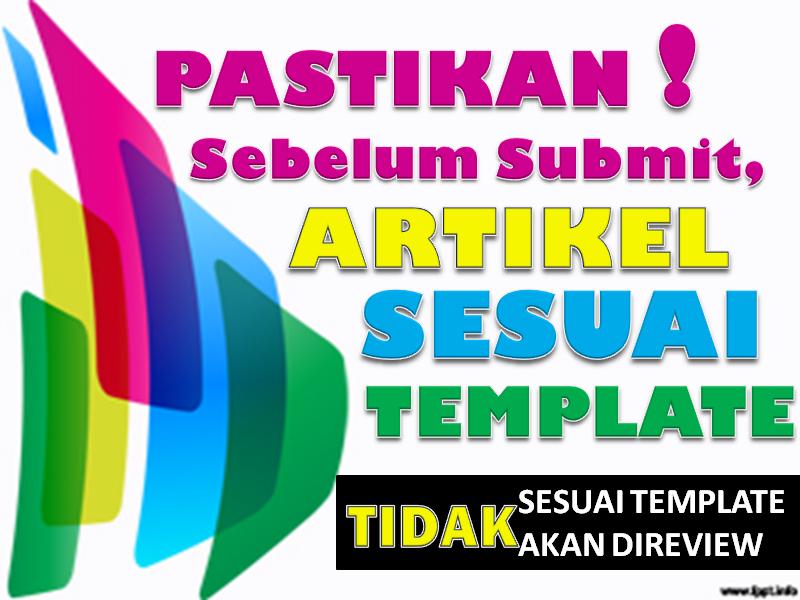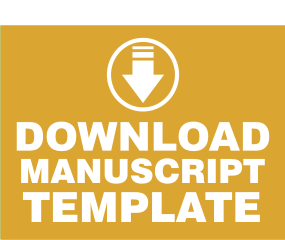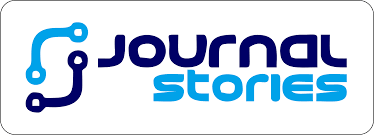Effectiveness of Self-Regulated Learning-Based Instruction: Enhancing Student Learning Autonomy (Study on LMS Syam-Ok UNM)
(1) Universitas Negeri Makassar (Scopus ID: 57202604419)
(2) Universitas Negeri Makassar
(3)
(4) Universitas Negeri Makassar
(5) Universitas Negeri Makassar
(6) Universitas Negeri Makassar
(*) Corresponding Author
DOI: https://doi.org/10.26858/publikan.v14i2.63830
Abstract
Learning autonomy is becoming essential in the 21st century, demanding individuals to master various fundamental skills. This article explores the self-regulated learning model as a solution to enhance student learning autonomy. A case study conducted in the music arts course at Universitas Negeri Makassar found that students' learning autonomy levels were still low, even among those considered active. Related research also confirms the low learning autonomy of students across various settings. The research methodology employed an experimental approach with a one-group pretest-posttest design. Data collection was carried out by observing student activities through a Learning Management System (LMS) before and after modifying instructional methods. Data analysis results showed a significant difference between pretest and posttest scores, with a notable increase in posttest scores. The findings indicate an improvement in student learning autonomy. Learning autonomy fosters the desire to learn and acquire new knowledge, facilitates individual ownership of learning, and enhances learning independence. The study concludes that modifying instructional methods based on the self-regulated learning model effectively improves student learning autonomy.
Keywords: Learning Autonomy, Learning Models, Self-Regulation, Students, Education.Full Text:
PDFReferences
Bandura, A. (1978). The self system in reciprocal determinism. American Psychologist, 33, 344-358.
Bandura, A. (1991). Social cognitive theory of self-regulation. Organizational Behavior and Human Decision Processes, 50(2), 248–287. https://doi.org/10.1016/0749-5978(91)90022-L
Barlia, Lily. 2009. “Perubahan Konseptual dalam Pembelajaran sains Anak Usia Sekolah Dasar”. Jurnal Ca- krawala Pendidikan, XXVIII (1),48-59.
Boekaerts, M. (1999). Self-regulated learning: where we are today. International Journal of Educational Research, 31(6), 445–457. https://doi.org/10.1016/S0883-0355(99)00014-2
Brockett, R. G., & Hiemstra, R. (2018). Self-Direction in Adult Learning. Self-Direction in Adult Learning. https://doi.org/10.4324/9780429457319
Butler, D. L., & Winne, P. H. (1995). Feedback and Self-Regulated Learning: A Theoretical Synthesis. Review of Educational Research. https://doi.org/10.3102/00346543065003245
Corey, Gerald. 1995. Teori dan Praktek Konseling dan Psikoterapi vol 4.Translated by Mulyarto.Semarang : IKIP Semarang Pers
Corey, Gerald. 2013. Teori dan Praktek Konseling & Psikoterapi. Terjemah E. Koswara. Bandung. Refika Aditama
Dabbagh, N., & Kitsantas, A. (2005). Using web-based pedagogical tools as scaffolds for self- regulated learning. Instructional Science. https://doi.org/10.1007/s11251-005-1278-3
Dart, Barry C.; Clarke, John. Modifying the Learning Environment of Students To Enhance Personal Learning.PUB DATEDec 90NOTE45p.; Paper presented at the Annual Conference of tha Australian Association for Research in Education(Sydney, New South Wales, Australia, December1990).
de Bruin, A. B. H., & van Gog, T. (2012). Improving self-monitoring and self-regulation: From cognitive psychology to the classroom. Learning and Instruction,22(4),245–252. https://doi.org/10.1016/j.learninstruc.2012.01.003
Dumas, Redish,.,et al., Apractical guide to Usability Testing. John Wiley & Sons. 1999
Hidayat, W., Ranius, Y. Ependi, U. Penerapan Metode Usability Testing Pada Evaluasi Situs Web Pemerintahan Kota Prabumulih. Jurnal Teknik Informatika. 2014.
Hobri, 2011, metodologi Penelitian Pengembangan, Jember: Pena Salsabila.
Hariyanto, D., Murtinugraha, R. E., & Iriani, T. (2012). Hubungan kemandirian belajar terhadap hasil belajar mekanika teknik II pada mahasiswa program studi Pendidikan Teknik Bangunan Universitas Negeri Jakarta. Jurnal Pensil: Pendidikan Teknik Sipil, 1(1), 21-40.
Jézégou, A. (2013). The influence of the openness of an E-learning situation on adult students’ self-regulation. International Review of Research in Open and Distance Learning. https://doi.org/10.19173/irrodl.v14i3.1450
Joyce, B., Weil, M., & Calhoun, E. (2009). Models of Teaching: Model-model pengajaran. Yogyakarta: Pustaka Pelajar.
Jossberger, H., Brand-Gruwel, S., Boshuizen, H., & van de Wiel, M. (2010). The challenge of self-directed and self-regulated learning in vocational education: A theoretical analysis and synthesis of requirements. Journal of Vocational Education and Training, 62(4), 415–440. https://doi.org/10.1080/13636820.2010.523479
Iskandar. 2009. Psikologi Pendidikan Sebuah Orientasi Baru. Ciputat: Gaung Persada Press
Kay Livingston. (2012). Independent Learning. Springer Nature.
Lestari, Winda And Mardetini, Edutivia (2022) Analisis Tingkat Kemandirian Belajar Mahasiswa Pendidikan Ekonomi Fakultas Keguruan Dan Ilmu Pendidikan Universitas Sriwijaya Tahun Akademik 2020. Undergraduate Thesis, Sriwijaya University.
Meyer, W. R. (2010). Independent learning : a literature review and a new project. British Educational Research Association Annual Conference, (September), 1–4. Retrieved from http://www.leeds.ac.uk/educol/documents/193305.pdf
Pintrich, P. R. (2000). An Achievement Goal Theory Perspective on Issues in Motivation Terminology, Theory, and Research. Contemporary Educational Psychology. https://doi.org/10.1006/ceps.1999.1017
Ponton, M. K. (1999). The measurement of an adult’s intention to exhibit personal initiative in autonomous learning. washington: ProQuest Dissertations Publishing.
Purwanto, M. Ngalim. 1988. Psikologi Pendidikan. Bandung: Remadja Karya CV
Shea, P., & Bidjerano, T. (2010). Learning presence: Towards a theory of self-efficacy, self-regulation, and the development of a communities of inquiry in online and blended learning environments. Computers and Education. https://doi.org/10.1016/j.compedu.2010.07.017
Sugilar. (2000). Kesiapan Belajar Mandiri Peserta Pendidikan Jarak Jauh. Http://Simpen.Lppm.Ut.Ac.Id/.
W.Santrock, J. (2015). Psikologi Pendidikan (terjemahan). Jakarta: Prenada Media Group.
Whipp, J. L., & Chiarelli, S. (2004). Self-regulation in a web-based course: A case study. Educational Technology Research and Development, 52(4), 5–21. https://doi.org/10.1007/BF02504714
Winne, P. H., & Perry, N. E. (2000). Measuring Self-Regulated Learning. In Handbook of Self-Regulation (pp. 531–566). Elsevier. https://doi.org/10.1016/B978-012109890-2/50045-7
Zacks, S and Hen, M. 2018. Academic interventions for academic procrastination: A review of the literature. Journal Of Prevention & Intervention In The Community 2018, Vol. 46, No. 2, 117–130
Zimmerman, B. J., & Schunk, D. H. (2011a). Handbook of Self-Regulation of Learning. Educational Psychology Handbook Seriies.
Zimmerman, B. J., & Schunk, D. H. (Eds.). (2011b). Handbook of self-regulation of learning and performance. Handbook of self-regulation of learning and performance. New York, NY, US: Routledge/Taylor & Francis Group.
Zimmerman, B., & Schunk, D. (2001). Self-regulated learning and academic achievement: Theoretical perspectives. Hoboken : Lawrence Erlbaum Associates, 2012.
Article Metrics
Abstract view : 10 times | PDF view : 0 timesRefbacks
- There are currently no refbacks.
Copyright (c) 2024 Sayidiman Sayidiman, Andi Ihsan, Hartoto Hartoto, Afdhal Syamsuddin, Hamzah Pagarra, Bhakti Prima Findiga Hermuttaqien

This work is licensed under a Creative Commons Attribution-NonCommercial-ShareAlike 4.0 International License.
Publikasi Pendidikan : Jurnal Pemikiran, Penelitian dan Pengabdian Masyarakat Bidang Pendidikan
ISSN 2548-6721 (online), ISSN 2088-2092 (print)
Email: [email protected]

Publikasi Pendidikan is licensed under a Creative Commons Attribution-ShareAlike 4.0 International License.
Publikasi Pendidikan : Jurnal Pemikiran, Penelitian dan Pengabdian Masyarakat Bidang Pendidikan Indexed by

































